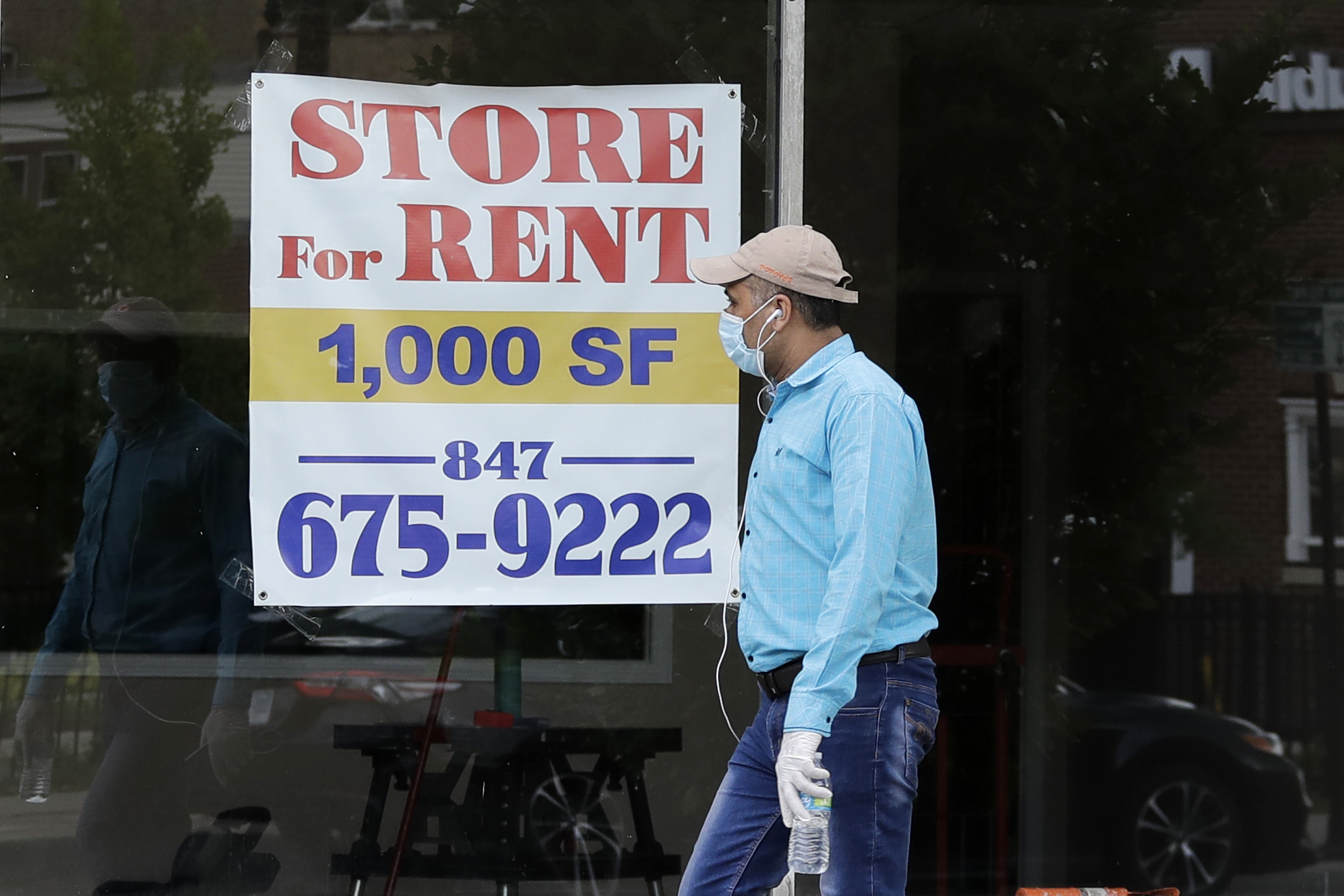With July Comes Rent Burden In Fulton County As Pandemic Effects Rage

Nam Y. Huh / Associated Press
July 1 marks the day many Atlanta landlords will ask tenants to make good on their rent since judicial emergency extensions made it so owners could not pursue evictions due to the coronavirus pandemic.
On March 14, Chief Justice of the Supreme Court of Georgia Harold Melton declared a statewide judicial emergency. That order has been extended three times, with revisions. As of July 14, the busiest housing court in Georgia is planning to resume eviction hearings.
Fulton County also faces a backlog of nearly 2,000 eviction cases as the new order will force legal deadlines on tenants. Yet, to avoid mass vacancies, many landlords have worked with tenants to find a reasonable middle ground in order to pay the rent back in full.
But one Virginia Highland business owner told “Morning Edition” host Lisa Rayam that she and several other small business owners, part of a once-thriving block, are being forced out.
Catina Stavroulakis has been the face of the corner store, Art Bath Soul, for more than a decade. It’s nestled on North Highland Avenue nearby Genki Noodles and Sushi, Fontaine’s Oyster House and Highland Tap. Stavroulakis said it’s heartbreaking to see not only herself but other business owners as well, be asked to pay in full or face eviction proceedings in the face of a still-raging pandemic.
“The landlord has put out five or six business owners during COVID,” she said. “Before, this area had a 90% occupancy. Now there’s about 60% occupancy.”
Stavroulakis’ lease is up, and she said the Meddin Company, which represents the block’s landlord Stuart Meddin, is not willing to compromise. On March 16, Stavroulakis closed Art Bath Soul, just like many businesses across Atlanta. For the next few months, her shop saw only partial business. Now, the Meddin Company wants the rent paid in full.
“[The back rent is] over $10,000. We were closed for two and a half months, and that’s pretty difficult,” she said.
The narrative has been that, come July, landlords would be within their right to ask for their rent and to move forward in the courts with possible evictions.
Stuart Meddin told “Morning Edition” that a payment plan was in place that included a new lease, but Stavroulakis nixed the agreement last week, saying she should not have to pay in full.
Meddin says they are both in business, and The Meddin Company has worked out reasonable payment arrangements with other tenants in the area.
“My complaint is that I have an unreasonable landlord lacking compassion and lacking empathy,” Stavroulakis said.
She said the neighborhood could be devastated, and the lost businesses could affect the attraction that other tenants have to the area. She wondered what Meddin gains by not compromising, and dealing with vacancies instead of a community that could eventually pull itself back up.
“The entire burden of these losses are on my shoulders. I’ve run through my savings, trying to get through this period of time. You have a landlord who has tenure on the block, who has more strength, and more ability to be flexible, than me,” she said.
“He’s demanding full payment, or turn the keys over. Demanding full payment, or I will be down there to put a sign in your window.”







